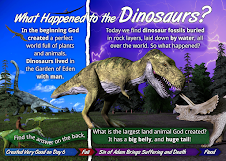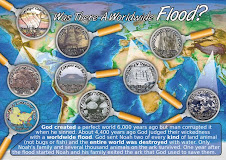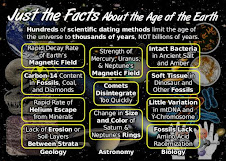Einstein’s Heroes—biblical creationists
There’s little doubt that the most famous scientist of the 20th century was Albert Einstein (1879–1955). Today his name is synonymous with ‘genius’. Most people today would recognize his most famous equation, E=MC2, (though many would be hard-pressed to explain what it actually means!). But even Einstein had his science heroes.
So whom would the great Einstein have admired? They must have been incredible scientists for Einstein to have thought highly of them! And they were. Einstein had pictures of his three heroes of science on his study wall.1 They were Isaac Newton2 (1642–1727), Michael Faraday3 (1791–1867), and James Clerk Maxwell4 (1831–1879).
But these three men also had another thing in common—they were all Bible-believing creationists.
All three men were deserving of Einstein’s veneration. Newton’s
laws of motion and his notion of gravity were the first ideas that
successfully unified ideas about the motions of the stars, planets, and
the earth. Faraday is widely regarded as the greatest experimenter of
all time. His work involved showing that magnetism could produce
electricity, and discovering benzene, among many other things. Maxwell
discovered the four fundamental equations of electricity and magnetism,
and predicted electromagnetic radiation at a certain enormous speed.
Light was measured to have that speed—300,000 km (186,000 miles) per
second—showing that light was electromagnetic radiation. Without their
discoveries, we wouldn’t have much of the technology we have today.
Practically everything involving moving parts, electricity, and
magnetism can in part be attributed to the work of these three men. But these three men also had another thing in common—they were all Bible-believing creationists. By today’s standards all three would be regarded as ‘fundamentalists’. Newton wrote more on theology than he ever did on science, believing the Bible to be God’s Word. Faraday was a member of a very conservative offshoot of the Church of Scotland, the Sandemanians. The Sandemanians were known for their plain interpretation of the Bible. A recent book said:
“A member of a gentle Christian sect, the Sandemanians, Faraday was deeply religious and viewed science—exploration of nature—as an extension of his heartfelt faith.Maxwell was widely read in theology. He interacted with many of the best theological minds of his day, always as a solid evangelical Christian. In fact, he often chided other believers for tying religious truth too tightly to the science of the day. He understood this not as a problem for God’s unchanging Word, but as a problem for man’s ever changing understanding of how the world works.
“Although we in the 21st century debate the conflict of science and religion, Faraday saw no such division. “‘The book of nature, which we have to read, is written by the finger of God,’ he wrote. For Faraday, ‘unravelling the mysteries of nature was to discover the manifestations of God.’”5
Maxwell’s faith in the Bible even shocked a young Karl Pearson6 who, when he questioned the Flood, was reprimanded by Maxwell for questioning the Bible!
“The conversation turned on Darwinian evolution; I can’t say how it came about, but I spoke disrespectfully of Noah’s Flood. Clerk Maxwell was instantly aroused to the highest pitch of anger, reproving me for want of faith in the Bible! I had no idea at the time that he had retained the rigid faith of his childhood, and was, if possible, a firmer believer than Gladstone7 in the accuracy of Genesis.”8
Newton, Faraday, and Maxwell were not biblical creationists for nothing.
Sadly, Einstein did not share the spiritual convictions of his
heroes. Like many in his day and now, he felt free to abandon the
biblical God.9 Little did he know that for all his great work he was operating on borrowed assumptions.
Newton, Faraday, and Maxwell were not biblical creationists for
nothing. They understood that the only reasonable ground for the amazing
regularity we find in the natural world is the orderly and unchanging
God of Scripture. They understood that the assumptions of science,10 which only find their grounding in God, cannot be separated from the history11
to which He has testified. And they understood that His Word is surer
than the foundations of the universe, including the laws that govern it.
They sought to think God’s thoughts after him. Einstein’s heroes have a lot to teach us. The world is ordered because God orders it. God’s Word doesn’t change and is always trustworthy, unlike man’s scientific theories. But good science will always square with Scripture—they both come from the same God, after all. They also teach us that far from being opposed to science, biblical creation is its solid foundation.
Article from Creation.com HERE







